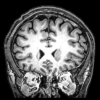Is Aging Fundamentally Driven By The Effects of Pathogenic Microbes Within The Body?
Aging researchers have cataloged a series of mechanisms through which aging occurs, including: DNA damage, telomere shortening, the effects of free radicals, glycation, mitochondrial damage, hormonal decline, inflammation, and so forth.
However, very little attention has been given to the deleterious effects of pathogenic microbes in the body as an underlying cause of aging. Though woefully understudied, pathogen-related aging may turn out to be the most significant mechanism of aging, in the sense that the highly disruptive action of pathogenic microbes within the body probably underpins or accelerates many of the aging mechanisms listed above.
If our bodies could be cleared of these accumulated pathogens, this should greatly reduce the rate of aging, as well as the incidence of the numerous diseases these microbes are associated with precipitating. In other words, eliminating these pathogenic microbes should increase not only lifespan, but also healthspan.
Clearing the body of pathogenic microbes is no mean feat. Most of us will have acquired and accumulated hundreds of chronic (and permanent) microbial infections. Indeed, by the time we are around 20 years old, we will be carrying a whole raft of permanent viral and bacterial infections in our tissues, and probably quite a few protozoal, fungal and helminth infections to boot.
Unfortunately, pathogenic microbes are very common in humans: Epstein Barr virus, for example, is found in around 95% of adults, HHV-6 virus in over 90%, Coxsackie B virus in 55% of adults, cytomegalovirus in 50%, and parvovirus B19 in 50%. For all of these listed viruses, once caught, they cannot be eliminated. Many bacteria also accumulate in the body, and remain as resident microorganisms: Chlamydia pneumoniae, for example, is found in around 20% of people by the time they reach adulthood; this bacterium lives inside human cells, where it continually disrupts cellular mechanisms.
Only a few viruses like rhinovirus — a common cold virus — are eliminated totally from the body. But most microbes remain in the body permanently once you have caught them, usually simmering at a low level of infection, with these simmering infections constantly exerting a disruptive effect on bodily function, which can precipitate chronic disease.
How Microbes Mess Up Normal Human Metabolism
There are several reasons why pathogenic microbes in our body are so disruptive to normal metabolism. One very disruptive process deriving from pathogens in our tissues is their production of toxins and virulence factors, often for facilitating the spread of these microbes. For example, many viruses and bacteria synthesize connective tissue-dissolving enzymes (such elastase and collagenase), as virulence factors to help them dissolve through human tissue and spread into new areas and compartments of the human body.
Another very disruptive process employed by most microbes is their immune evasion activities. Immune evasion is the active process that microbes use to constantly throw spanners into the workings of the immune system, in order to stop it from functioning properly, thus preventing the immune system from targeting and eliminating the microbes. Immune evasion tactics employed by microbes include the synthesis of fake cytokines. Cytokines are the messenger molecules of the immune system. The fake cytokines made by microbes are virtually identical to real cytokines made by humans; these fake cytokines are designed to misdirect, thwart or switch off the immune response, so that the microbes avoid being killed by the immune system. In essence, microbes have evolved the ability to hack into the immune system, and screw with the way it works.
Thus pathogenic microbes in our body are very disruptive to normal metabolism, and perturb normal bodily function.
Pathogenic Microbes And Chronic Disease
So pathogens are probably significantly accelerating the aging process, via the myriad minor malfunctions or maladjustments of human metabolism these microbes create in our bodies. And these pathogens are almost certainly a primary cause of chronic disease.
Yet few scientists do research on, or think about, this concept. One very notable exception is evolutionary biologist Paul W Ewald, who is well known for his view that many diseases of currently unknown or unclear etiology (like, autoimmune diseases, diabetes, heart disease, Crohn's disease, many cancers, Parkinson's, Alzheimer's, depression, bipolar, schizophrenia, multiple sclerosis, chronic fatigue syndrome, and so forth) are very likely due to chronic, low level microbial infections. In other words, Paul Ewald thinks that germs, not genes, are the cause of most common chronic diseases.
If a great many common diseases are indeed caused by infectious pathogens rather than genes, then humanity stands a good chance of eradicating these diseases, by eradicating the infectious microbes that cause them, thus extending our lifespans and healthspans.
However, very little funding is allocated to examining the microbial causes of common chronic diseases — this research area gets only a tiny fraction of the money allocated to genetic research, for example.
What are the reasons for this lack of focus and funding on this important area of research? This is an issue I would love to see discussed further on this site.
This lack of focus and funding on how pathogens may cause accelerated aging and precipitate disease needs to be addressed.
Further Reading On Disease — Pathogen Links
Paul W Ewald Says Germs, Not Genes, Cause Most Chronic Diseases
A New Golden Age Of Medicine
List Of Human Diseases Associated With Infectious Pathogens
Viruses In Perspective – Thoughts And Ideas
Can You Catch A Heart Attack?
Equations That Spell Disaster: Researchers Are Pinpointing The Factors That Combine To Produce Complex Diseases
Checking To See If Your Particular Health Condition Or Disease Is Linked To Any Infectious Microbes
Edited by Hip, 25 August 2011 - 01:30 AM.


























































